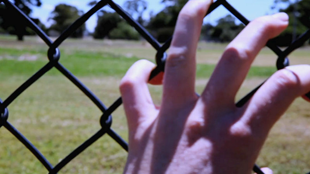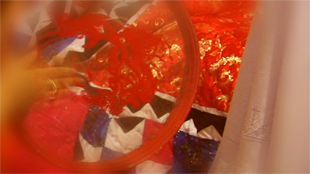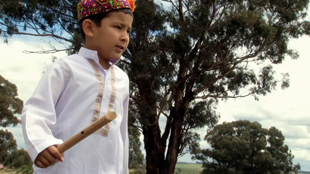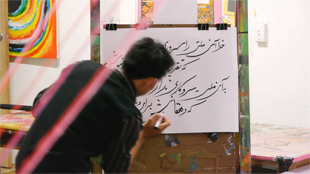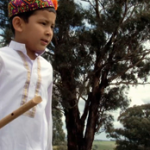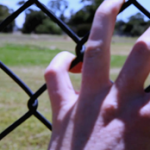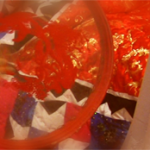Inside Bamiyarra is a snapshot biopic of Bamiyarra itself, a media arts project that brought together a young team of Hazara from refugee backgrounds to work with Melbourne artists and filmmakers. We produced micro-docs, a photo essay and video installation much of which was inspired by a poem.
Tag: micro-docs
Micro-doc: Migration
Migration is the story of a Hazara family that sought refuge in Australia, how the open sea both carried them here and afforded one of their sons a future in the surf.
Bamiyarra On Screen
Bamiyarra On Screen is the international premier screening of a short-docs series produced by young Hazara in Melbourne and Kabul in collaboration with Melbourne film-makers and media artists. Meet the film-makers, the producers and participate in a Q & A about the series and the media arts program these documentaries grew from.
When: 7pm, Wed 17 October, 2012
Where: ACMI, Federation Square Flinders St, Melbourne
Full: $12
Concession: $10
Bamiyarra On Screen was produced in association with Youthworx Media, Multicultural Arts Victoria, Mechid TV with the assistance of EngageMedia. Bamiyarra would also like to acknowledge the support of Wind & Sky Productions for dubbing services.
Purchase tickets online at ACMI or at the box-office.
Program
Migration / Duration: 09:07
Migration is the story of a Hazara family that sought refuge in Australia, how the open sea both carried them here and afforded one of their sons a future in the surf.
A Hazaragi Wedding: 06:50
A Hazaragi Wedding, incorporating family videos and memorabilia, traces the events leading up to and throughout a traditional wedding ceremony.
Hope In Life / Duration: 12:17
Hope In Life follows the aspirations of Hazara who sought asylum in Australia to pursue their education and arts practice, and how their ties to home land influences and sustain them regardless of the challenges they face.
Between The Lines / Duration: 14:00
Between The Lines follows the story of the Pakistan based Sketch Club to a gallery in Collingwood, Melbourne, where its first exhibition in Australia was hosted.
Q & A / Duration: 20 – 30 mins
Hosted panel with film-makers, producer and researchers.
Bamiyarra is a Home Lands v2 project – a media arts initiative connecting young Hazara from refugee backgrounds to their home lands and separated communities.
Home Lands v2 is a collaboration between La Trobe University, Swinburne University of Technology, City of Melbourne and the Cultural Development Network. Home Lands is funded by an Australian Research Council Linkage Grant, City of Melbourne and the Cultural Development Network.
Micro-docs

Five micro-docs were proposed for production. Two were completed in association with Youthworx Media as part of their inSite program.
Hope in Life
Duration: 12:17
Hope In Life follows the aspirations of Hazara who sought asylum in Australia to pursue their education and arts practice, and how their ties to home land influences and sustain them regardless of the challenges they face.
Produced in association with Youthworx Media.
Migration
Duration: 09:07
Migration is the story of a Hazara family that sought refuge in Australia, how the open sea both carried them here and afforded one of their sons a future in the surf.
Produced in association with Youthworx Media.
Between the Lines
Duration: 14:00
The cultural history of Afghanistan’s most persecuted minority is one interwoven with the arts, from the Persian poetry they learn as children to reverence for the Buddhas of Bamiyan, monolithic sculptures their ancestors created in the 5th Century and destroyed by the Taliban in 2001. To bring these practices into modern times, Hazara artist, Fazil Hussain Mousavi, founded The Sketch Club in Quetta, to introduce young Hazara to the skills, techniques and history of painting.
The micro-doc, Between The Lines, follows the story of The Sketch Club from Quetta to the Artful Dodgers Gallery in Collingwood, where its first exhibition in Australia is hosted. Between The Lines is a story of young Hazara depicting the social circumstances of their country, the genocide of Hazara people and how their new found skills and art has helped them to express the complex issues of injustice and uncertainty, that has also connected them to and inspired Hazara youth who have sought asylum the world over.
Produced in association with Mechid TV.
A Hazaragi Wedding
Duration: 06:50
Hazaragi culture is no where more accentuated than in a traditional wedding. Bringing together every facet of cultural life, from traditional music, clothing, food and ritual. A Hazaragi Wedding traces the events leading up to and throughout the wedding ceremony. A Hazaragi Wedding is underscored by traditional music, a collage of wedding photos and video, and of course the food, the celebration, mehmanies (public feasts) and dance.
Bamiyarra Reflections
Status: pre-production
Although young Hazara from refugee backgrounds in Melbourne have immersed themselves in education with high goals and aspirations they are never far from the issues they had left behind. Bamiyarra Reflections is a conversation between Hazara youth in Melbourne and Afghanistan exploring complex and challenging issues such as forced migration, youth suicide and drug abuse.
Interwoven with the opportunities found in Australia and the constraints still faced in Afhganistan, Bamiyarra Reflections describes the transformations taking place in the first generation of Hazara to receive an education in over 200 years.
Premier screening
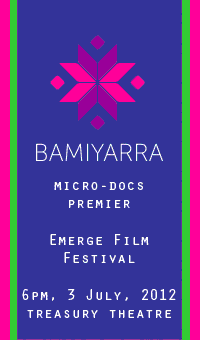 Premier screening of two Bamiyarra micro-docs, Migration and Hope In Life, at the Emerge Film and Arts Festival presented by Multicultural Arts Victoria.
Premier screening of two Bamiyarra micro-docs, Migration and Hope In Life, at the Emerge Film and Arts Festival presented by Multicultural Arts Victoria.
Migration is the story of a Hazara family that sought refuge in Australia, how the open sea both carried them here and afforded one of their sons a future in the surf. Hope In Life follows the aspirations of Hazara who sought asylum in Australia to pursue their education and arts practice, and how their ties to home land influences and sustain them regardless of the challenges they face.
The micro-docs were mentored in collaboration with Melbourne film-makers Penne Thornton and Naina Sen and produced by Andrew Garton.
Premier 6pm, Tuesday 3 July, Treasury Theatre, Melbourne.
Bamiyarra is a Home Lands v2 project – a unique concept that asks artists to collaborate with young Hazara to make art and engage in conversations about cultural origins and transformations, youth identity and aspirations.
Home Lands v2 is a collaboration between La Trobe University, City of Melbourne and the Cultural Development Network. Home Lands is funded by an Australian Research Council Linkage Grant, City of Melbourne and the Cultural Development Network.
